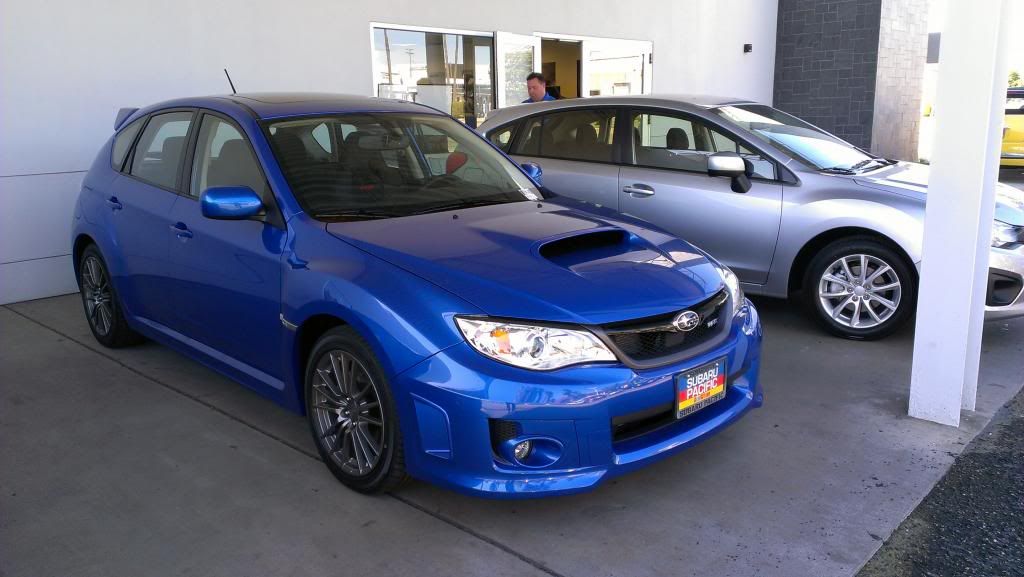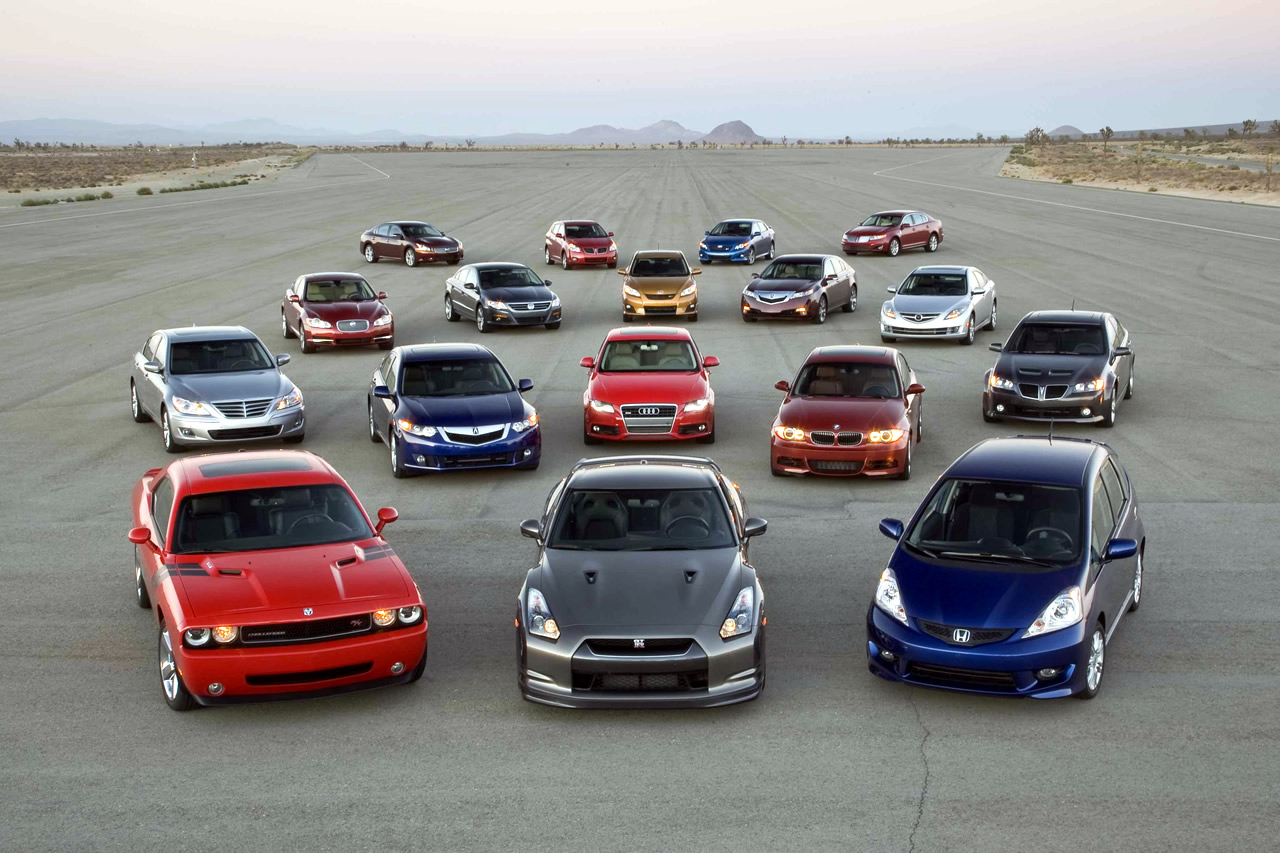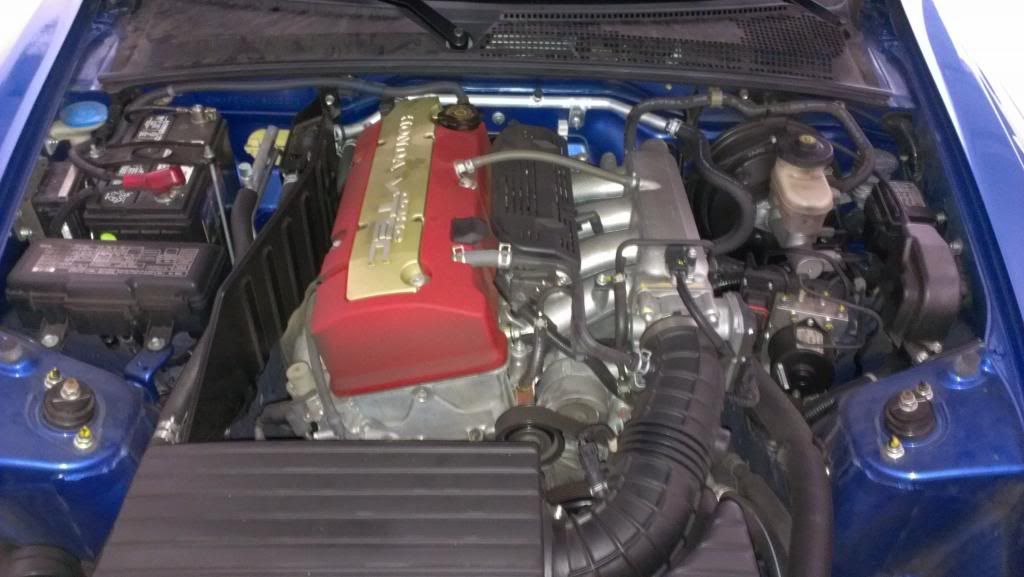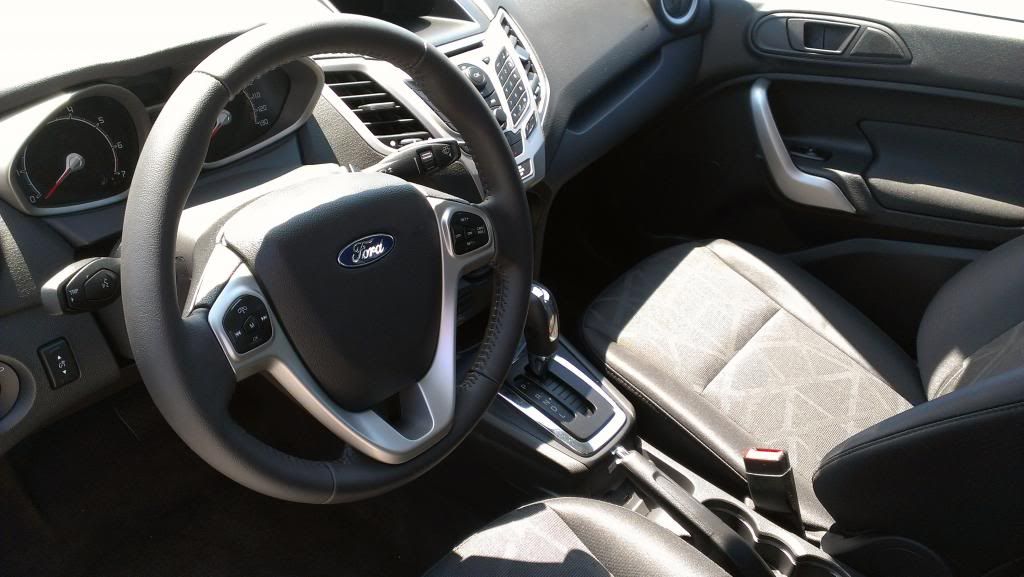 |
| Image courtesy of Sunbrite Auto Works, Inc. |
In order to help me gather data, I devised a short survey to see what the average car buyer looks for when looking for a new car. After passing it around to friends and family, here are the results of the survey. Keep in mind that this is an informal survey and is in no way scientific, but does show how one broad group of people approach buying a new car.
1. When looking at a new car, how important to you are factors enthusiasts look at such as handling, braking, power, engine type, tires, etc.? What sort of characteristics do you look for in a new vehicle?
I was not all that surprised to find out that power would be the most important factor the group I surveyed would pick. After all, horsepower is generally equated to how fast a car is. Other factors such as reliability, braking ability, and handling were also important factors that the group brought up, though handling and ride quality did not seem to be a top priority compared to reliability and braking ability. The rest of the responses from the group were varied among things such as fuel economy, vehicle size, value, etc.
The group's responses to the first question leads me to believe that horsepower, reliability, and feeling safe are some of the key factors in what some average car buyers look for in a car. These responses make sense as these three factors, along with fuel efficiency, are generally hammered into our subconscious by auto manufacturers. Watch any TV or internet ad for a car these days and all you hear is how car A is safer, more efficient, and more powerful than car B.
2. How important is a new car's fuel consumption to you? If this is very important to you, would you spend the extra money on a hybrid, an electric car, or some other alternative fuel vehicle?
As I expected, everyone in the survey group considered fuel efficiency an important factor in today's car buying environment. With constantly rising gas prices, it only makes sense to want a car that sips fuel instead of chugs it. With regards to purchasing a hybrid or alternative fuel vehicle though, the responses is mostly the same: most of the group would only purchase a hybrid if it was affordable and financially beneficial. There was one person in the group that flat out would not purchase a hybrid because they are mostly boring to drive. There was another person who said that they would be willing to purchase an alternative fuel vehicle if the infrastructure for it exists.
Fuel efficiency is important, and I expected people to find it important. These days, car manufacturers are so focused on selling fuel efficiency that they are willing to lie to consumers about their vehicle's fuel efficiency. Take the Hyundai and Ford fuel efficiency fiasco for example. Both companies were willing to fudge their fuel efficiency numbers in a effort to sell more cars. Consumers recording their real world fuel economy numbers began to notice that they were unable to achieve the estimated numbers put out by Hyundai or Ford, and a lawsuit was filed. I do not quite remember what Ford's response to their fiasco was, but Hyundai offered to compensate owners by offering to pay out the fuel cost difference between an owner's real world economy and the EPA estimate.
3. What sort of safety and convenience features do you look for in a new car (i.e. lane departure warning, blind sport monitoring, rear cameras, traction control, etc.)?
 |
| Image courtesy of autoworld.com.my |
Out of all my survey participants though, only one person wanted more than just a rear camera. This person also wanted features like automated parallel parking and built in navigation. His reasoning? He is admittedly a lazy driver and would frankly let the vehicle drive itself if he could. I am also assuming that being a tech junkie and electrical engineer may have also swayed his decision.
4. How important are tech toys and gadgets in a new car to you (i.e. Bluetooth, iPod/iPhone/iPad integration, Pandora internet radio, Satellite Radio, touch screens, etc.)
 I got a very mixed response with this question. There were some that did not care for these sort of gadgets at all, while others seemed to want everything. The only tech related item a majority of the survey participants could agree on was Bluetooth.
I got a very mixed response with this question. There were some that did not care for these sort of gadgets at all, while others seemed to want everything. The only tech related item a majority of the survey participants could agree on was Bluetooth.The most interesting response I got from this questions was from one person who thought having tech gadgets in their car was important, but thought getting them aftermarket would be more cost efficient. In most cases, this is true, especially when it comes to items like navigation. Most car manufacturers intentionally bundle navigation with other items, often forcing the buyer to pay thousands of dollars just to have the one item they really wanted. Car manufacturers will also often charge an exorbitant amount of money to update the navigation system, where as some aftermarket navigation makers do not charge for updates at all.
5. How important is it that your new car be equipped with an automatic transmission? If you were told you would save between $800 and $1000 by picking a manual, and you did not already know how to drive one, would you rather learn or spend the extra money on an automatic? Why?
As an enthusiast, watching the manual transmission die a slow, painful death in American automotive culture is a bit heart wrenching. To most of my survey participants though, they probably would not care if the manual transmission vanished off the face of the planet. The majority of my participants agreed that they would much rather spend the extra money on an automatic for two reasons: 1. sheer laziness, especially during heavy traffic, and 2. fear of breaking the manual transmission.
There were, of course, some interesting outliers though. I had one participant who already knew how to drive manual, and actually enjoys it quite a bit. Another one said that they would prefer to have an automatic, but in the interest of saving money, would be more than happy to learn how to drive manual. This person also welcomed the challenge of learning how to drive manual as it would give them something new to learn.
6. How important are a car's looks to you? Do you prefer something plain and simple like a Honda Civic, clad in aero parts like Mitsubishi Lancer Evolution, upscale like a Mercedes Benz, or out there like a Lamborghini?
 This is another question with a mixed bag of responses. While almost every person agreed that a car's looks
This is another question with a mixed bag of responses. While almost every person agreed that a car's looksare important, the sort of car they prefer was quite different. There were some that preferred cars with a conservative and simple design, some that preferred upscale luxury cars, and a few that liked the look of exotics. One person even responded that the look they prefer depends on what their bank account could afford at the time.
One response really stood out from the rest. This person felt that looks change with one's age. As this person is currently in their mid-20s, they feel like they are currently into more stylish vehicles like the Tesla Model S. As they grow older and start a family, this person feels they would probably grow into more conservative looking cars like the Honda Civic.
7. How important is the brand of a car? Do you feel any sort of loyalty so a specific brand? Why?
 |
| Photo courtesy of House of the Triple S |
Of the people who agreed that brand was important and that brands are associated with things such as reliability, it would seem all of them either drive a Honda or Toyota vehicle. Honda and Toyota are generally associated as being the two most reliable auto manufacturers. I think the most interesting part of the sub-group is that many have driven both Honda and Toyota vehicles and most prefer the driving dynamics of Honda vehicles over Toyota.
8. Value is an important factor in today's automotive landscape. Please describe what you define as a car that would be the best "bang for the buck." If you have a specific model in mind, please say what it is, otherwise please just describe your ideal car.
The general consensus on what sort of car offers the best "bang for the buck" is a car that is reliable, fuel efficient, practical, stylish, and offers a great warranty period. Off the top of my head, I cannot really think of a car like this. The Hyundai Genesis Sedan equipped with the V6 might fit this description, though many might find the car too conservative looking to be stylish. The only other car I can think of would be the 2013 Honda Accord in either Sport trim or EX-L V6 trim.
Only two of my survey participants were able to name an exact model they feel would be the best "bang for the buck." One participant claimed that the Honda Civic was their idea as the best value. This participant also already owns a Honda Civic, and was also the same participant that is the only one of the group who knows how to drive manual. The other participant picked the Volvo S60 as their choice. This is a choice that I can agree with and seems to match the criteria listed by the other participants.
Conclusions?
What sort of conclusions can I draw from this survey? Based on the responses that I received, it would seem that the average car buyer's buying guideline might look something like this:
- Decent power
- Good safety ratings
- Good fuel efficiency
- Reliable
- Positive brand image
- Automatic transmission
- Rear camera
- Bluetooth
So how does this guideline compare to what I, as an enthusiast, would look for in a car? While some of the things on the list above are things that I would look for, there are two things I would leave out, such as the need for a rear camera and the automatic transmission. Personally, factors such as handling, ride quality, steering and braking feel would also rate very high on my list.
In the end, it would seem there are only a few things enthusiasts and the average car buyer can agree on when buying a new car. Of course, my survey sample was not that big, so there could very well be some difference of opinion. If you think this average car buyer guideline should look different, let me know what you think the average buyer looks for in the comments below.
Besides getting a better insight to what an average car buyer might want in a car, what other purpose does this editorial serve? In the next few weeks, I will be reviewing a few cars in the subcompact segment with the help of my fiancee. She will be offering her insight to these cars from the perspective of the average car buyer. This survey will give me a base guideline to compare to what my fiancee thinks about the cars that we test drive, and whether or not the conclusions I drew from the survey could be considered accurate. Our joint reviews will culminate in a subcompact "showdown," and will give an insight to which car an enthusiast would pick, and which car the average car owner would pick. Stay tuned!




Looking at that list, it is no wonder the Honda Accord and Toyota Camry consistently outsell nearly all their competitors. It is also no wonder that Toyota is the largest car maker in the world despite the fact that the majority of cars in its line-up are more boring than white bread. While there are certainly a number of good performance options out there today, the bulk of the mid-size car market seems to be consolidating towards a rather homogeneous set of cars that are largely distinguishable by very minor differences. Luckily, at least a few manufacturers, like Mazda, are willing to put in the effort to separate themselves a bit and offer some interesting cars that are fun to drive.
ReplyDeleteI forgot to put this in the article itself, but a big thanks to everyone who participated in this survey. You guys were all a huge help!
ReplyDelete